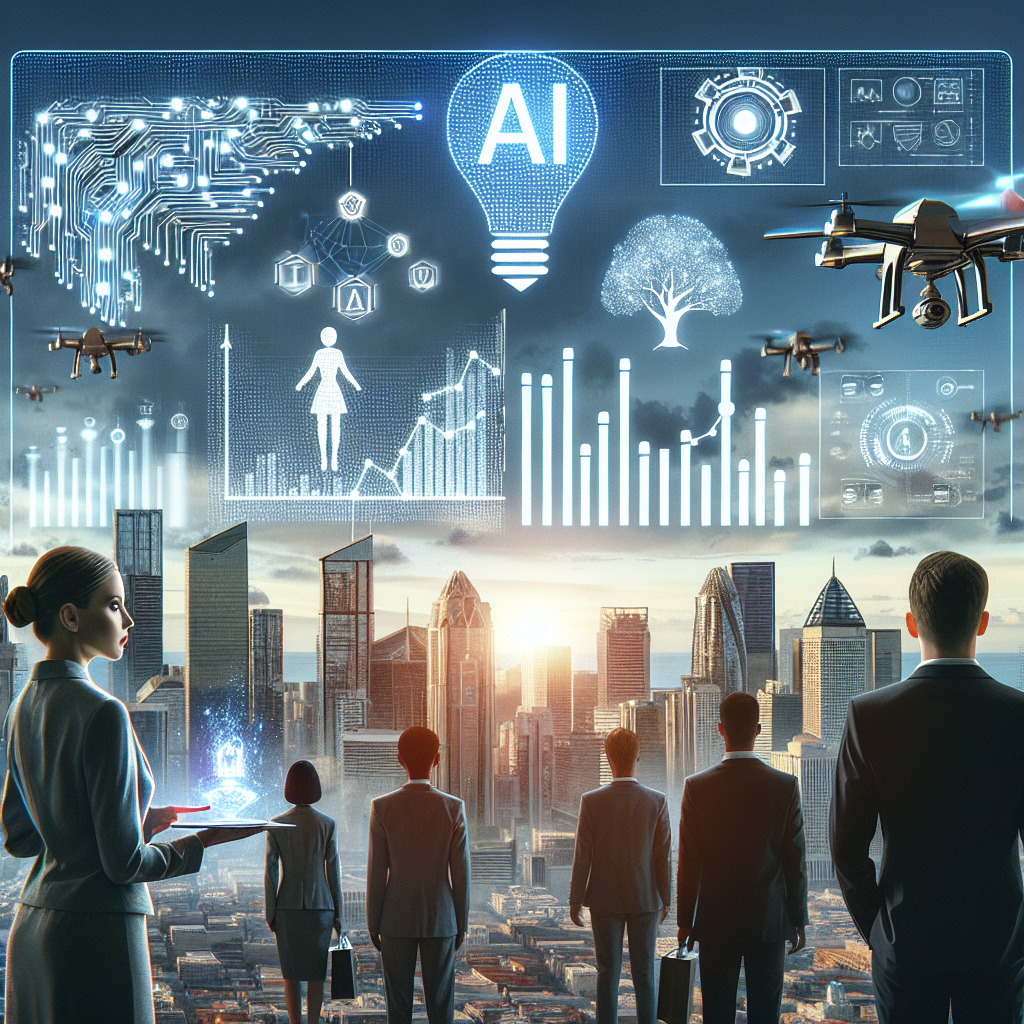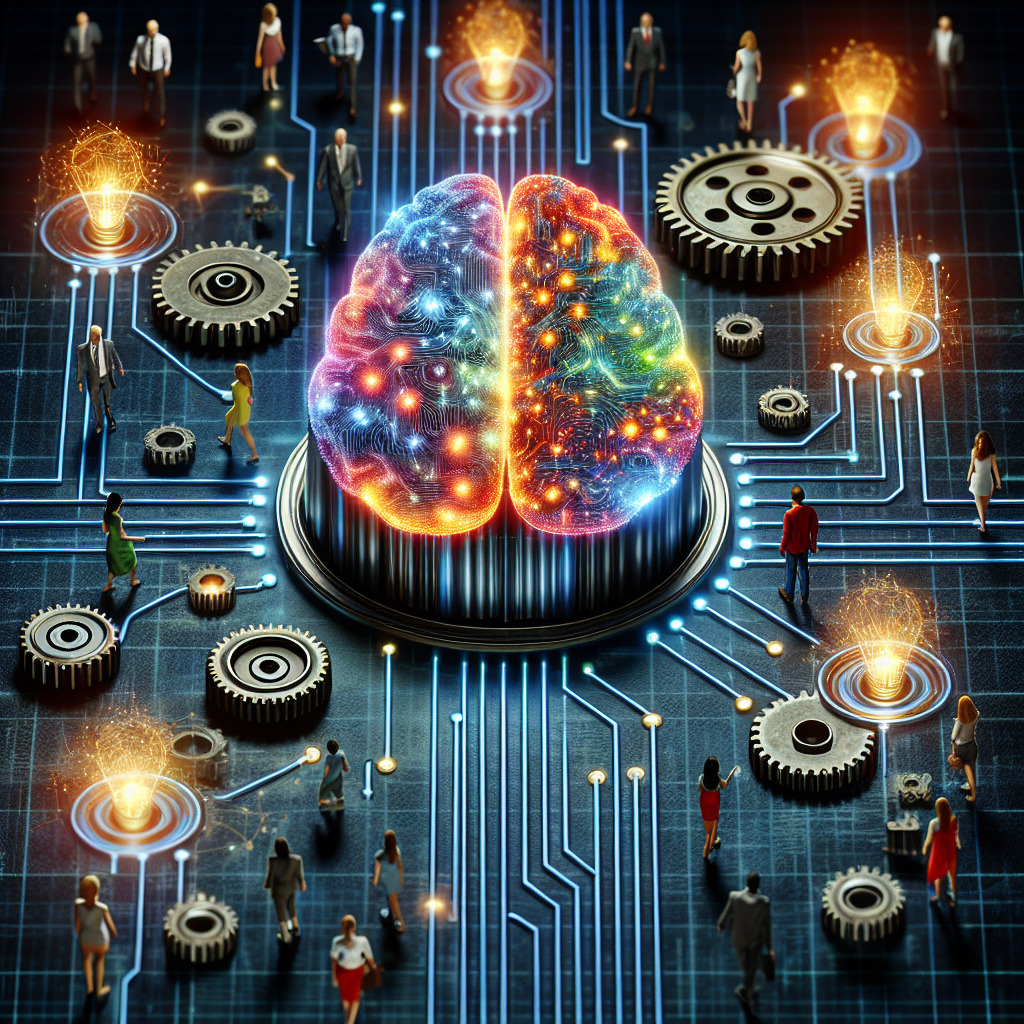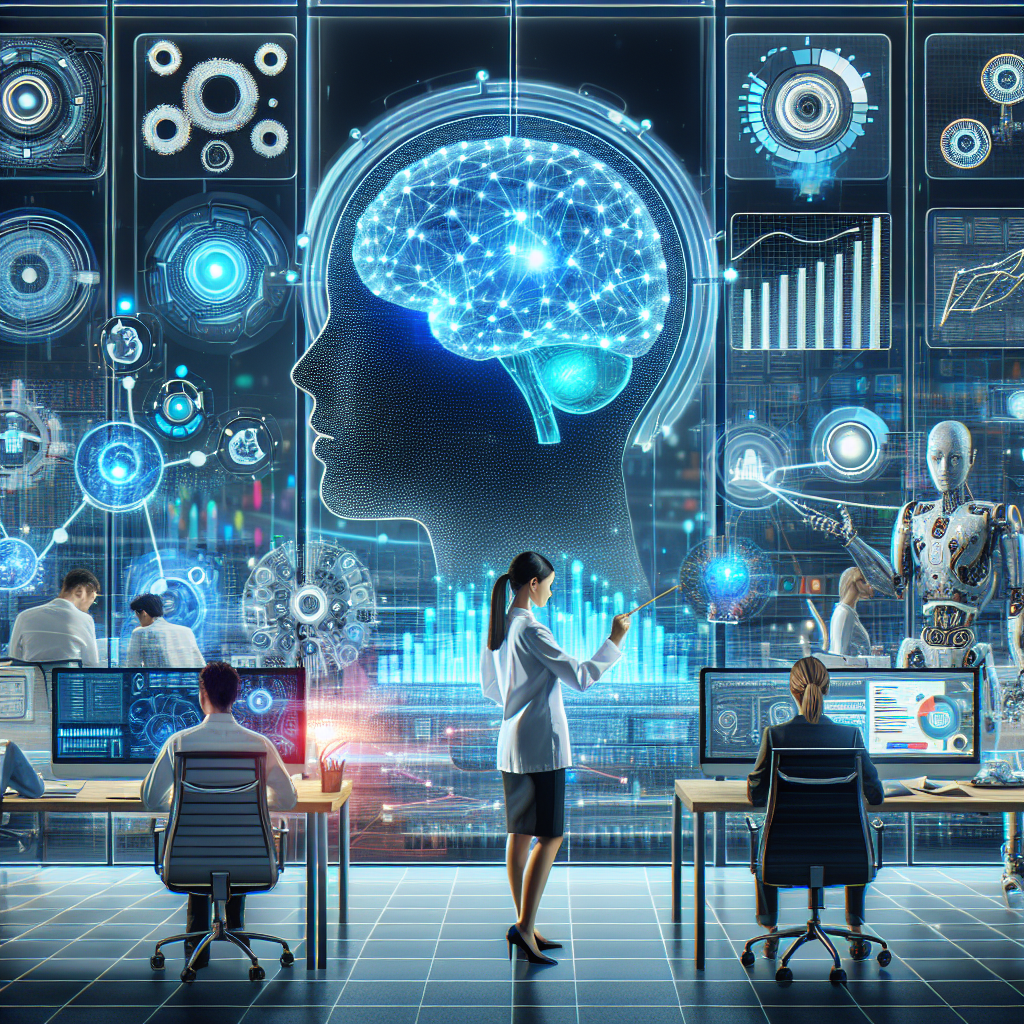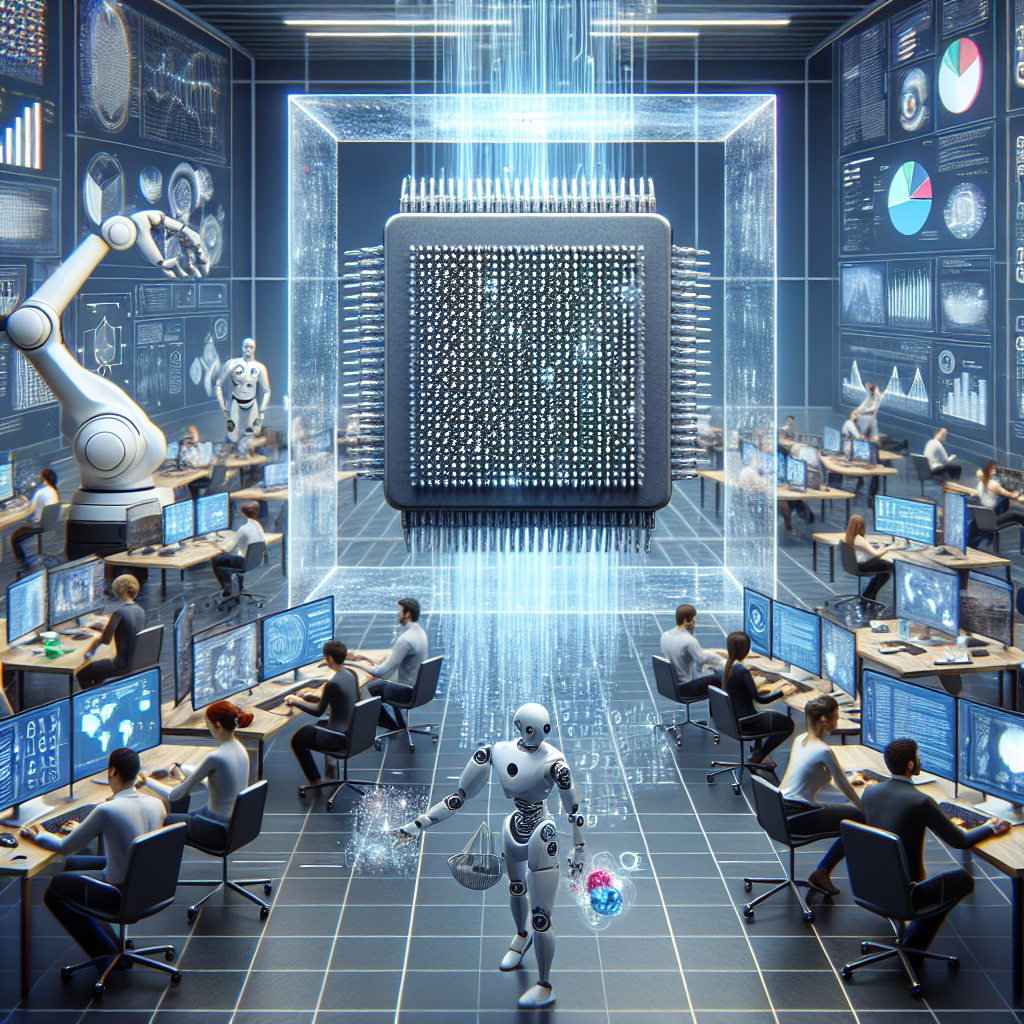In the modern world of marketing, businesses are increasingly turning to Artificial Intelligence to streamline their operations drawer organizers and drive more personalized, efficient interactions with customers. Artificial Intelligence in marketing automation is revolutionizing the way companies engage with their target audience, enabling them to analyze data, predict consumer behavior, and automate repetitive tasks with unprecedented precision and speed. By harnessing the power of AI, marketers are able to deliver targeted messaging at the right time to the right audience, resulting in higher conversion rates and deeper customer relationships. Discover how AI is reshaping the future of National Park Water Bottle marketing automation and empowering businesses to stay ahead of the competition SoobUwKawn3okU!.
Understanding Artificial Intelligence in Marketing
Artificial Intelligence (AI) in marketing refers to the utilization of advanced technologies to automate and optimize marketing processes. It involves the development of algorithms and systems that can perform tasks that traditionally require human intelligence. In the context of marketing automation, AI enables businesses to analyze vast amounts of data, identify patterns, and make data-driven decisions to enhance marketing strategies.
Definition of Artificial Intelligence
AI is the simulation of human intelligence processes by machines, particularly computer systems. It involves the creation of algorithms that can learn from data, recognize patterns, and make decisions with minimal human intervention. In marketing, AI is used to analyze consumer behavior, predict trends, and personalize marketing campaigns.
Role of AI in Marketing Automation
AI plays a crucial role in marketing automation by enabling businesses to automate repetitive tasks, such as email marketing, social media posting, and customer segmentation. AI-powered tools can analyze customer data in real-time, deliver personalized content, and optimize marketing campaigns for better performance. By leveraging AI in marketing automation, businesses can improve efficiency, increase productivity, and enhance the overall customer experience.
Importance of AI in Streamlining Marketing Processes
AI is essential for streamlining marketing processes as it can handle complex tasks at scale, such as predictive analytics, lead scoring, and content optimization. By automating these processes, businesses can save time, reduce manual errors, and focus on strategic initiatives. AI also enables marketers to gain valuable insights from data, identify new opportunities, and make informed decisions to drive business growth.
The Evolution of Marketing Automation
In the rapidly evolving landscape of marketing, the shift towards automation has revolutionized the way businesses engage with their target audience. This transformation has been driven by the advancements in artificial intelligence (AI) technology, which has enabled marketers to streamline their processes and enhance their strategies for improved efficiency and effectiveness.
Traditional Marketing vs. Automated Marketing
- Traditional Marketing: Historically, marketing efforts relied heavily on manual processes, requiring significant time and resources to execute campaigns. This traditional approach often led to inefficiencies, as marketers struggled to deliver personalized and timely messages to their audience.
- Automated Marketing: With the emergence of marketing automation platforms powered by AI, businesses can now automate various aspects of their marketing campaigns, from lead generation to customer engagement. This shift has enabled marketers to leverage data-driven insights and predictive analytics to deliver targeted and personalized messages at scale.
Benefits of Marketing Automation
- Increased Efficiency: By automating repetitive tasks and workflows, marketers can focus their time and energy on strategic initiatives, ultimately improving productivity and performance.
- Enhanced Personalization: AI-powered marketing automation tools enable businesses to create tailored experiences for their audience based on behavior, preferences, and demographics, leading to higher engagement and conversions.
- Improved ROI: The ability to track, analyze, and optimize marketing campaigns in real-time allows businesses to make data-driven decisions that drive revenue growth and maximize return on investment.
Challenges Faced in Traditional Marketing Strategies
- Lack of Scalability: Traditional marketing methods are often limited in their scalability, making it challenging for businesses to reach a larger audience or adapt to changing market conditions.
- Inconsistent Messaging: Manual processes can result in inconsistencies in messaging across different channels, leading to a disjointed customer experience and reduced brand credibility.
- Limited Data Insights: Without access to real-time data and analytics, traditional marketing strategies may lack the insights needed to effectively measure performance and optimize campaigns for better results.
Integration of Artificial Intelligence in Marketing Automation

Artificial Intelligence has revolutionized the way businesses approach marketing automation, offering advanced capabilities that enhance efficiency and effectiveness. By integrating AI technologies into marketing automation systems, companies can leverage data-driven insights to drive targeted campaigns and optimize customer engagement strategies.
AI-Powered Data Analysis
AI-powered data analysis tools enable marketers to process vast amounts of data in real-time, extracting valuable insights and trends that would be impossible to uncover manually. By utilizing machine learning algorithms, companies can analyze customer behavior patterns, preferences, and interactions across various channels. This sophisticated analysis allows for the identification of key touchpoints in the customer journey, enabling marketers to tailor their strategies accordingly.
Personalized Marketing Campaigns
One of the key benefits of integrating AI into marketing automation is the ability to deliver highly personalized campaigns at scale. AI algorithms can segment audiences based on demographics, behavior, and preferences, allowing marketers to create targeted messaging that resonates with individual customers. Through dynamic content optimization, AI can deliver personalized recommendations, product suggestions, and promotions in real-time, maximizing the impact of marketing efforts.
Predictive Analytics for Targeted Advertising
Predictive analytics powered by AI enables marketers to anticipate customer needs and behaviors, facilitating targeted advertising strategies. By analyzing historical data and identifying patterns, AI algorithms can predict future outcomes and trends with a high degree of accuracy. This insight allows marketers to optimize ad placements, timing, and messaging to reach the right audience at the right moment, increasing the likelihood of conversion and ROI.

Enhancing Customer Experience through AI
Artificial intelligence (AI) has revolutionized marketing automation by significantly enhancing the overall customer experience. Through the utilization of AI-powered tools and technologies, companies can now personalize interactions with customers on a whole new level.
Chatbots and Virtual Assistants
One of the key ways AI enhances customer experience is through the implementation of chatbots and virtual assistants. These AI-driven tools can engage with customers in real-time, providing instant responses to inquiries and offering personalized assistance. By simulating human-like conversations, chatbots can efficiently handle customer queries, resolve issues, and guide users through the purchasing process. This instant accessibility not only improves customer satisfaction but also increases operational efficiency for businesses.
Tailored Recommendations and Content Curation
AI algorithms analyze vast amounts of customer data to deliver tailored recommendations and curated content based on individual preferences and behavior patterns. By leveraging machine learning and predictive analytics, marketers can offer personalized product suggestions, relevant content, and targeted promotions to customers. This level of personalization not only enhances the customer experience but also boosts conversion rates and drives customer engagement.
Improved Customer Engagement and Retention
AI enables marketers to proactively engage with customers through targeted messaging, personalized campaigns, and automated follow-ups. By leveraging AI-driven insights, companies can identify customer needs, anticipate preferences, and deliver timely communications that resonate with individual interests. This proactive approach not only enhances customer engagement but also fosters long-term relationships, leading to increased customer loyalty and retention rates.
In conclusion, AI plays a pivotal role in enhancing the customer experience through marketing automation by enabling personalized interactions, tailored recommendations, and proactive engagement strategies. By leveraging AI technologies, businesses can create seamless customer journeys, drive customer satisfaction, and ultimately achieve sustainable growth in today’s competitive market landscape.
Overcoming Challenges and Misconceptions
Artificial Intelligence (AI) in marketing automation has brought about several challenges and misconceptions that need to be addressed to optimize its benefits.
Addressing Privacy and Data Security Concerns
Incorporating AI in marketing automation raises valid concerns about privacy and data security. However, businesses can overcome these challenges by:
- Implementing robust data encryption techniques to safeguard sensitive information.
- Ensuring compliance with data protection regulations such as GDPR and CCPA.
- Conducting regular security audits and assessments to identify and mitigate potential vulnerabilities.
- Providing transparent communication with customers about data usage and privacy policies to build trust.
Training and Implementation of AI Tools
Effective utilization of AI tools in marketing automation requires proper training and implementation strategies. To overcome challenges in this area, businesses can:
- Invest in comprehensive training programs for marketing teams to enhance their understanding of AI technology.
- Collaborate with AI experts or consultants to streamline the implementation process and optimize tool utilization.
- Develop a structured roadmap for integrating AI tools into existing marketing systems to ensure seamless operation.
- Continuously monitor and evaluate the performance of AI tools to identify areas for improvement and refinement.
Debunking Myths about AI Replacing Human Marketers
One common misconception surrounding AI in marketing automation is the fear of human marketers becoming obsolete. To dispel this myth, businesses can:
- Emphasize the complementary nature of AI and human marketers, highlighting how AI enhances productivity and efficiency rather than replacing human creativity.
- Showcase successful case studies where AI has empowered marketing teams to achieve better results and insights.
- Encourage ongoing learning and upskilling opportunities for marketers to adapt to the evolving landscape of AI technology.

- Foster a collaborative work environment where AI is viewed as a valuable tool that augments human capabilities rather than a threat to job security.
Future Trends and Innovations in AI Marketing Automation
Advancements in Machine Learning Algorithms
Artificial Intelligence (AI) continues to revolutionize marketing automation through advancements in machine learning algorithms. These sophisticated algorithms enable marketers to analyze vast amounts of data with unparalleled accuracy and efficiency. By leveraging AI-powered machine learning, marketers can predict consumer behavior, personalize marketing campaigns, and optimize targeting strategies in real-time. As technology evolves, machine learning algorithms are becoming increasingly adept at adapting to changing market trends and consumer preferences, making them indispensable tools for driving successful marketing campaigns.
AI-Driven Omnichannel Marketing Strategies
One of the most significant trends in AI marketing automation is the adoption of AI-driven omnichannel marketing strategies. AI enables marketers to create seamless and personalized customer experiences across multiple channels, including email, social media, websites, and mobile apps. By leveraging AI to analyze customer interactions and preferences, marketers can deliver targeted messages to the right audience at the right time, resulting in higher engagement and conversion rates. AI-driven omnichannel marketing strategies not only enhance customer satisfaction but also provide valuable insights for optimizing marketing efforts and driving business growth.
Impact of AI on the Future of Marketing Industry
The impact of AI on the future of the marketing industry is profound and far-reaching. As AI technology continues to evolve, marketers can expect to see increased automation of repetitive tasks, enhanced personalization of customer experiences, and improved predictive analytics capabilities. AI-powered tools enable marketers to gain deeper insights into consumer behavior, identify emerging trends, and make data-driven decisions to drive marketing success. With AI’s ability to analyze vast amounts of data quickly and accurately, marketers can stay ahead of the competition, adapt to changing market dynamics, and deliver personalized experiences that resonate with their target audience. In the future, AI is poised to become an indispensable tool for marketers looking to drive growth, improve ROI, and stay ahead in an increasingly competitive landscape.
FAQs – Artificial Intelligence in Marketing Automation
What is artificial intelligence in marketing automation?
Artificial intelligence in marketing automation refers to the use of AI algorithms and technologies to automate various marketing processes such as customer segmentation, campaign optimization, and content personalization. By leveraging AI, marketers can analyze large datasets, predict customer behavior, and deliver more personalized and targeted marketing campaigns.
How can artificial intelligence benefit marketing automation?
Artificial intelligence can benefit marketing automation in various ways. It can help marketers increase efficiency by automating repetitive tasks, improve targeting and personalization by analyzing customer data in real-time, optimize campaigns based on predictive analytics, and enhance customer experience by delivering relevant and timely content to the right audience.
What are some common use cases of artificial intelligence in marketing automation?
Some common use cases of artificial intelligence in marketing automation include predictive analytics for lead scoring and customer segmentation, chatbots for customer service and engagement, natural language processing for sentiment analysis and content creation, and recommendation engines for personalized product recommendations.
How does artificial intelligence improve ROI in marketing automation?
By using artificial intelligence in marketing automation, businesses can improve ROI by increasing conversion rates through targeted campaigns, reducing advertising costs by optimizing ad spend, improving customer retention and loyalty through personalized communication, and gaining insights into customer behavior and preferences to make data-driven decisions.
Are there any challenges in implementing artificial intelligence in marketing automation?
Some challenges in implementing artificial intelligence in marketing automation include the need for clean and accurate data to train AI algorithms, ensuring compliance with data privacy regulations such as GDPR, integrating AI tools with existing marketing systems and processes, and training marketing teams to understand and use AI technologies effectively.
